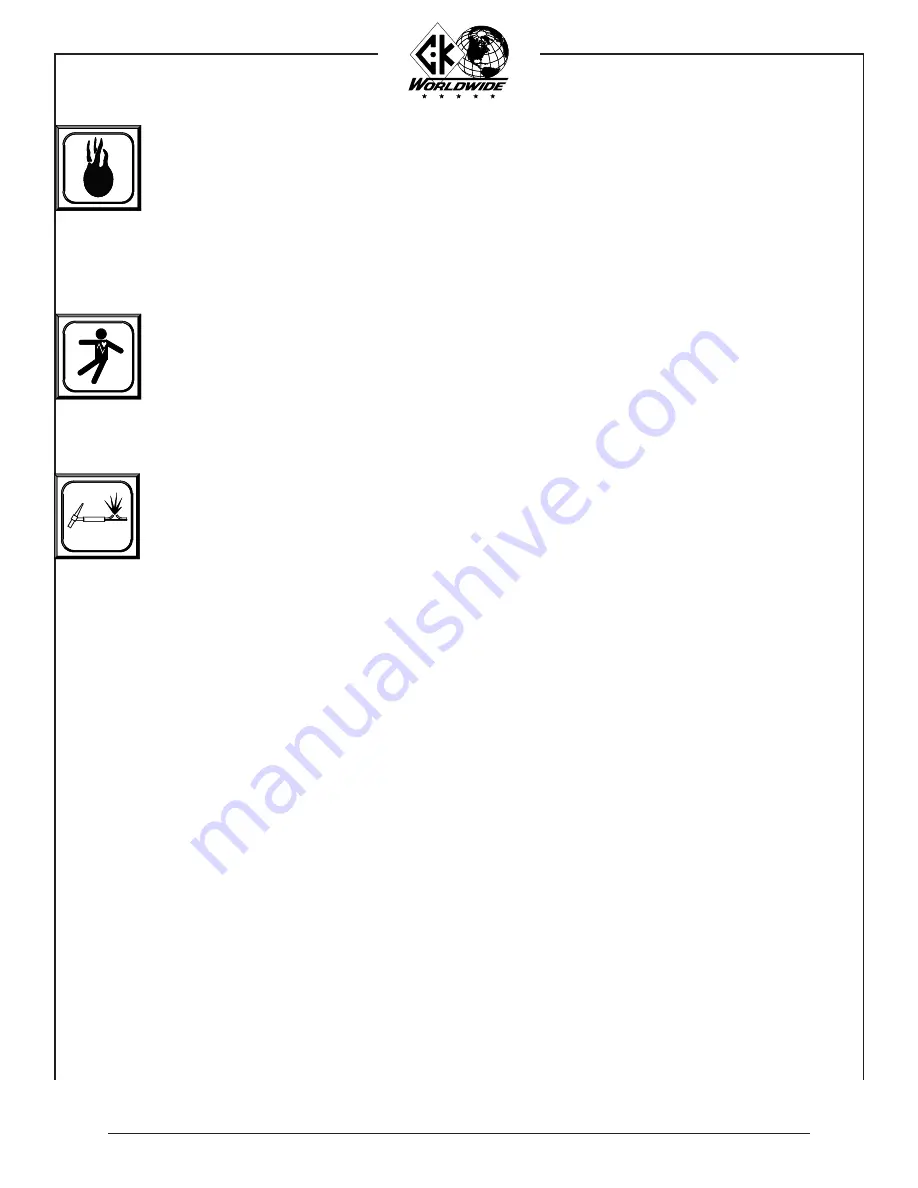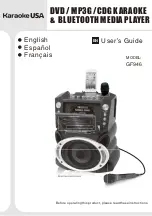
3
the hot workpiece, hot equipment, spatter, and arc sparks can cause fires and burns.
prevent fires and BUrns:
1. Wear correct eye, face, and body protection in the work area.
2. allow work and equipment to cool before handling.
3. do not weld near flammable materials.
4. Watch for fire, and keep a fire extinguisher nearby.
5. for additional information, refer to nfpa standard 51B, “fire prevention in Use of cutting and Welding
processes”, available from the national fire protection association, Batterymarch park, Quincy Ma 02269.
provide protection for special sitUations:
1. do not weld or cut containers or materials which have held or been in contact with hazardous substances
unless they are properly cleaned and inspected.
2. do not weld or cut painted or plated parts unless special ventilation is provided to remove highly toxic
fumes or gases.
3. since welding can affect pacemakers, keep all pacemaker wearers out of the work area. have them
consult a doctor before coming near a welding operation.
provide proper eQUipMent Maintenance:
improperly maintained equipment can result in poor work, but most importantly it can cause physical injury or
death through fires or electrical shock.
1. always have qualified personnel perform the installation, troubleshooting, and maintenance work. do not
perform any electrical work unless you are fully qualified.
2. Before performing any maintenance work inside a power supply, disconnect the power supply from the
electrical power source.
3. Maintain cables, grounding wire, connections, power cord, and power supply in a safe working order. do
not operate any equipment in questionable condition.
4. do not abuse any equipment or accessories. keep equipment away from heat sources such as furnaces,
wet conditions such as water puddles, oil or grease, corrosive atmospheres, and inclement weather.
5. keep all safety devices, guards, panels, and covers in position and in good repair.
6. Use equipment for its intended purpose. do not modify it in any manner.
for more information on safe practices for setting up and operating electric welding and cutting equipment and
on good working habits, ask your welding equipment supplier. for your protection, read and comply with the
latest editions of the following standards:
1.
ansi standard Z49.1
available from the american Welding society, 550 n.W.
lejeune rd., Miami fl 33126.
2.
ansi standard Z87.1
“safe practices for occupation and educational eye and
face protection”, available from the american national
standards institute, 1430 Broadway, new york, ny 10018.
3.
aWs standard a6.1
“recommended safe practices for shielded arc Welding”,
available from the american Welding society 550 n.W.
lejeune rd., Miami fl 33126.
4.
aWs standard f4.1
“recommended safe practices for the preparation for
Welding and cutting of containers and piping that have
held hazardous substances”, available from the american
Welding society 550 n.W. lejeune rd., Miami fl 33126.
additional safety inforMation:
5.
csa standard W117.2
“code for safety in Welding and cutting”, available from
the canadian standards association, 178 rexdale Blvd.,
rexdale, ontario, canada M9W 1r3.
6.
nfpa standard 51B
“fire prevention in Use of cutting and Welding processes”,
available from the national fire protection association,
Batterymarch park, Quincy Ma 02269.
7.
nfpa standard 70
“national electrical code”, available from the national
fire protection association, Batterymarch park, Quincy Ma
02269.
8.
osha standard 29 cfr, part 1910, subpart Q
“Welding, cutting, and Brazing”, available from the
superintendant of documents, U.s. government printing
office, Washington d.c. 20402.




































